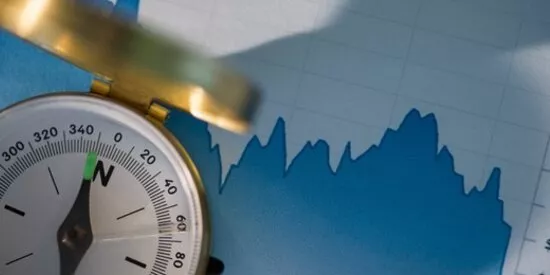
A measured approach to sustainable investment in Asia Pacific
Asset managers in Asia Pacific are working hard to refine the recipe for sustainable investing. Selecting the right ingredients is the first step to success.
The term ‘sustainable’ investing could mean ethics and values for some, or risk mitigation and performance for others. With an increasing investor demand for availability of sustainable investment solutions in Asia Pacific markets, more products are marketed as Environmental, Social, and Governance (ESG), while their ‘ingredients’ may vary.
The potential impact of such a variation nowadays may go beyond difference in interpretations, to reputational risk of ‘ESG over-representation’.
Before unpacking the intricacies of this variation, let’s take a step back to understand the approaches of ESG incorporation. For example, for an Exchange Traded Fund (ETF), the ‘ESG version’ of the index tracked by the fund is typically built through two broad categories of techniques – Exclusion (screening out what is not wanted) and selection (picking what is wanted). For these, ESG data – including ratings – is often a key building block.
The divergence of ESG ratings, however, is a common headache. Societe Generale’s quantitative analysts looked into this divergence on the constituents of the MSCI World Index between four major providers: while the correlation was positive in all cases, it was rarely strong.
Add in the local preferences in the region’s many diverse markets and it is clear there is no single recipe for sustainable investment that will suit all appetites. As more asset managers and institutional investors in Asia Pacific look to embed ESG considerations in their portfolios, it is important to understand where these interpretations differ – and where they are aligned.
A clear direction
One area of commonality is the increasing scrutiny of sustainability statements, where regulators are acting on the issue of inadequate product classification, loose terminologies and unsupported affirmations.
Investigations into vague sustainability claims are a reminder that investors must challenge themselves what they actually do to incorporate ESG and ensure the quality of the information they disclose to the markets and to their clients. Still, as disclosure requirements evolve yet vary among jurisdictions, they risk providing an incomplete, vague or ambiguous account.
Regulators are moving swiftly to tackle this disclosure dilemma. For example, the European Securities and Markets Authority (ESMA) provides supervisory guidance to European regulators on how to integrate sustainability risks and disclosures in asset management1 .
The Asia Pacific region has been a late adopter of ESG standards, but regulators are taking their cue from more advanced regions. Actions are being taken by regulators including Japan’s Financial Services Agency2 and Singapore’s Monetary Authority3.
We can safely predict that asset managers in Asia Pacific will face greater scrutiny of sustainability statements in the future – from regulators, customers and other stakeholders. Regardless of whether the regulators will take an approach as strict as in the EU, there is a business risk to being seen as a laggard in proper oversight and communication over ESG claim.
Proactive approaches
Clearer and more consistent regulation will be helpful, but investment firms cannot afford to wait for regulators to remove all uncertainty. They must be proactive in carrying out their own due diligence on the data and methodologies they choose for their products, and think cautiously about what they mean by ‘ESG’ and how they embed it across their investments.
Investors who choose to rely on third-party ESG ratings need to ensure they understand the vendor’s methodology, assumptions and limitations.
We have also looked into generating a consensus from the divergence between ESG ratings through an ESG Consensus tracker, noting that consensus ESG leaders’ financial forecasts generally have a better track record than most individual forecasts.
Institutions must also consider their approach on the materiality of ESG issues. Many ESG ratings focus only on issues that are material to financial performance. Increasingly, regulators in the EU are focusing on “double materiality”, which also takes into account how an investee company affects society and the environment.
Whatever their chosen approach, institutions should get ready to disclose how they are using the data they have selected: it is insufficient to declare what data has been used in designing an investment product – the product’s makers must also be clear about the role the data plays within the product and how it is expected to perform.
As regulators mandate more uniformity and more transparency, the recipe for sustainable investment is becoming clearer. But while this process remains under way in Asia Pacific, Societe Generale is ready to help institutions keep up with the evolving regulatory landscape in a way that helps convert uncertainties into opportunities.
1. https://www.esma.europa.eu/press-news/esma-news/esma-provides-supervisors-guidance-integration-sustainability-risks-and
2. https://www.fsa.go.jp/news/r4/singi/20220712/20220712_6.pdf
3. https://www.mas.gov.sg/regulation/circulars/cfc-02-2022---disclosure-and-reporting-guidelines-for-retail-esg-funds

China finds its feet: economic stability and gradual recovery in 2025
By Wei Yao, Head of Research and Chief Economist for APAC at Societe Generale.

Best of both worlds: How social ABS delivers low-cost financing and a positive impact
By Eugene Kim, Head of Securitisation and Fund Finance for Asia Pacific at Societe Generale.

Data centres are taking Asia-Pacific by storm
By Marie Vinnell, Chief Country Officer for Australia and Eugene Tan, Head of Technology, Media and Telecoms for Asia...

Societe Generale wins 10 awards in sustainable finance
Global Finance has announced the winners of its fifth annual Sustainable Finance Awards for 2025 and the selections for...




